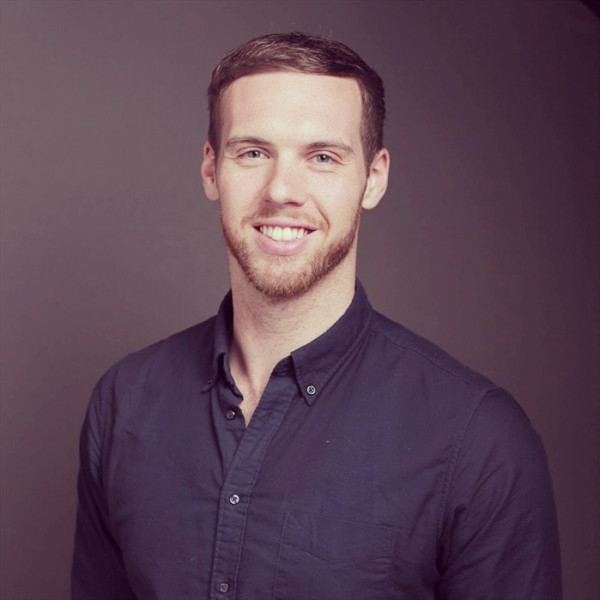
Interview with Stefan, a founder building a location-independent startup
How did you get started with remote work?
I first worked remotely in 2016 but didn’t do it in earnest until 2019.
Back in 2016, I’d left a consulting job to start my first business, which was failing miserably. I was working remotely on that startup the whole time, but it was because I couldn’t afford an office.
I went back into the working world, working for some startups in Toronto. During that time, I felt like the office environment maybe wasn’t for me, and I started freelance writing as a side hustle.
I loved that I could serve my clients and deliver value from anywhere— all I needed was my laptop and a wifi connection.
I worked in office environments from early 2017 to January 2019. After that, I decided to take my business full-time. I also decided that I wanted to work remotely. Instead of paying for an office rental, I loved the freedom of being able to see clients, travel, and work from home whenever I wanted.
Read 114 answers from other remote workers
What are you working on?
I’m building PulseBlueprint, a media company that publishes content to help people successfully make a transition in life such as getting a new job, a promotion, or starting a business.
I publish content on the website, Pulseblueprint.com, and I have some amazing clients that I write for as well (mostly growing tech startups and venture capitalists).
Read 107 answers from other remote workers
How do you stay on task?
I constantly refer to my calendar and my daily priorities.
Whenever I get off task or go down a social media rabbit hole, I check that list.
Read 100 answers from other remote workers
What do you like about remote work?
Location freedom! In 2019 I ran my business while on a 3-week vacation to England, Scotland, and the Netherlands. I’ve been able to spend more time with family in my hometown since all I need is my laptop.
It’s been amazing to be able to have total control over my time. This may not be the case for all remote workers since some companies will still have “working hours,” but no matter what, remote work affords at least a bit more time freedom.
Read 106 answers from other remote workers
What do you not like about remote work?
There is no one to bounce ideas off of when you’re working alone. This can be mitigated by joining a coworking space or working in pods (a few remote workers working together, whether on the same thing if they’re all employees of the same company or everyone working on their own thing).
Read 103 answers from other remote workers
What tools do you use to stay productive?
Here’s a list:
Read 108 answers from other remote workers
Where do you conduct your work?
Here’s where I work, with rough time percentages:
- My home (~80-90%)
- Cafes or other public spaces (~5-15%)
- Client offices or coworking spaces (~5%)
Read 15 answers from other remote workers
What about your space helps you to be productive?
Quiet! I love working from home because it’s quiet. Oddly enough, though, the hum and loudness of a cafe are also helpful because it’s so loud that I can tune it all out.
It’s the middle bit— idle chatter from people beside you—that really distracts me.
The other thing is that working from home gives me access to my kitchen, which means that I can keep my food costs down and make whatever cool things I want.
Read 15 answers from other remote workers
What does your workday routine look like?
- 7:30 to 8 am - wake up, scroll a bit of social, maybe check email
- 8:30 to 9 am - emailing, setting key priorities for the day
- 9 am to 1 pm - working, calls, or meetings
- 1 to 2:30 pm - lunch, resetting priorities, social media updating
- 2:30 to 5 or 6 pm - continue work, calls, or meetings
- 6 to 8 pm - dinner, socialize with my partner
- 8 to 9 pm - sometimes more work
- 9 to 11 pm - socialize with partner, tv
- 11 to 12 am - getting ready / bed
Read 16 answers from other remote workers
How do you decide priorities?
Each day I set up key things I need to accomplish in the following categories:
- In the business
- On the business
- Clients
- Personal
Figuring out what becomes a priority that day is a function of:
- Strategic priorities
- Client / personal deadlines
- Urgent things
- Financial attachment (is it worth a lot of money to me and thus I want to get it done quickly so I can get paid)
Read 40 answers from other remote workers
How do you avoid burnout?
I consciously take time to socialize and spend time with my partner. Most days, I do my best to turn off around six-ish and focus on being a human.
Also, prioritizing the gym 2-3x a week helps me stay healthy and maintain perspective.
Read 17 answers from other remote workers
What is the best advice you have ever received?
The best time to start a business is when the market asks you to.
Read 16 answers from other remote workers
What do you look for when you hire a remote worker or freelancer for your team?
Problem-solving orientation - I’m not around all the time for a quick question. Plus, when someone comes to me for help, I expect an answer that’s something along the lines of “Here’s what my challenge is. I’ve tried or looked at XYZ and am still stuck. Here’s what I’m trying to accomplish. Can you help?”
Overcommunicator - Because we’re remote, you can’t take anything for granted. Instead, I look for people who can communicate all the things that people would know if they were right beside you. So that means thinking about all the senses (the biggest thing about remote work is I can’t see you, so I need you to be descriptive in a way that I know what you did as if I was sitting beside you, seeing your work).
Honesty and follow through - Just like any good employee, I want someone honest who will do what they say they will. Many people can be socially motivated to get work done by people being in their presence. That doesn’t exist with remote work. You have to have the internal compass that guides you since I won’t be around.
Read 7 answers from other remote workers
What are you looking to achieve in the next five years?
Completely detach my earning potential from my hours worked or physical location (hopefully, this takes fewer than five years!)
Read 11 answers from other remote workers
What advice would you give to a new remote worker?
Know why you want remote. It can be lonely at times, so don’t forget the reason.
Do you want to travel more? Have time for your kids or family? Something else?
Read 13 answers from other remote workers
What advice would you give to a remote jobseeker?
Realize that remote work requires a LOT more explicit communication—this goes both ways.
Make sure that you are going in eyes wide open on what your employer expects of you, whether it is a strategic role or execution-focused. Also, know whether there are required daily check-ins and hours or total time freedom. Every basic assumption of the office world needs to be checked, validated, and mutually understood.
This includes:
- Socials (do they do remote socials or fly people together?)
- Check-ins (how often, what tools)
- Measuring success (role definition, role connection to company goals)
- Workstation set up (do they give you a laptop, like they would if you were in office?)
- Benefits (how do they administer benefits if you’re in a different country, not just a different city?)
Read 8 answers from other remote workers
What are the challenges of managing a remote team?
- Progress tracking
- Trust building
- Employee engagement
- Not forgetting that remote is a way of work, but employees are still people (not just a digital wall)
Read 1 answer from other remote workers
What are the benefits of managing a remote team?
- Time freedom (sometimes)
- Location freedom
- Forces you to up your game around both communication and goal setting
Read 1 answer from other remote workers
What did we forget to ask Stefan Palios?
At RemoteHabits we're always trying to improve our interviews, what question should we have asked Stefan Palios?
Biography
Stefan Palios
Stefan is a writer, entrepreneur, and speaker. He's the founder of PulseBlueprint, a media company that publishes content to help people successfully make a transition in life such as getting a new job, a promotion, or starting a business. He's a native Torontonian and advocate of remote and distributed work.
Work remotely? Share your story on RemoteHabits!
Want to be interviewed? If you have a remote position, head over to the interview me page!
Looking for a remote job?
RemoteHabits Jobs has everything you need to find your next great remote work position!
Related Interviews
Interview with Dane, a freelance writer and author with 7 published books
Dane is a freelance writer and author who works remotely, and balances client work with writing his own books.
Interview with Alexandra Cote, a remote digital marketer and freelancer
Alexandra juggles freelancing, a full-time remote job, YouTube, and Skillshare instructing. How does she manage it all? Find out in her interview.
Interview with Kevin, a developer and remote consultant
Kevin is a developer and consultant working on many different projects - learn which tools he uses to optimize his time management.


